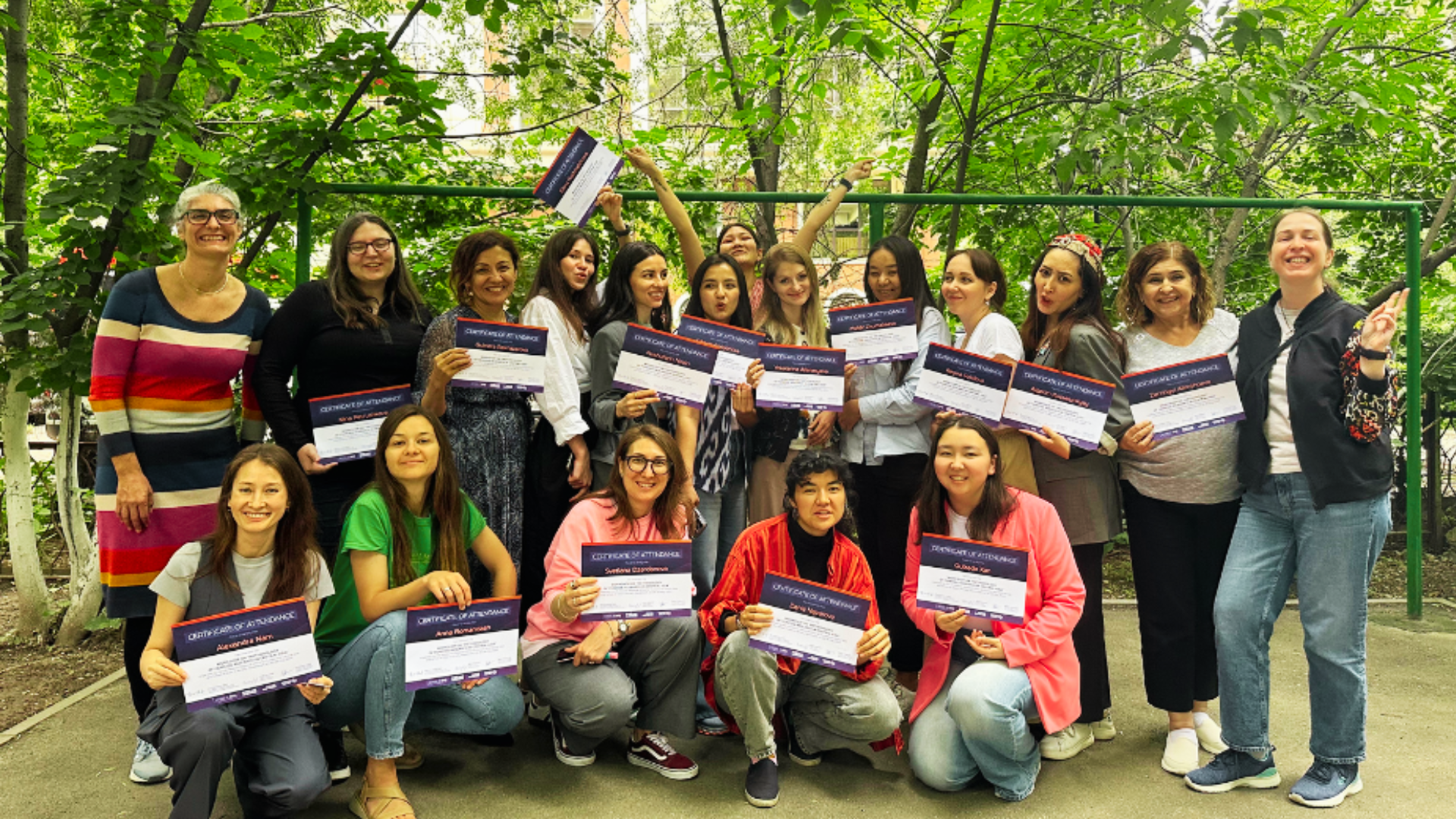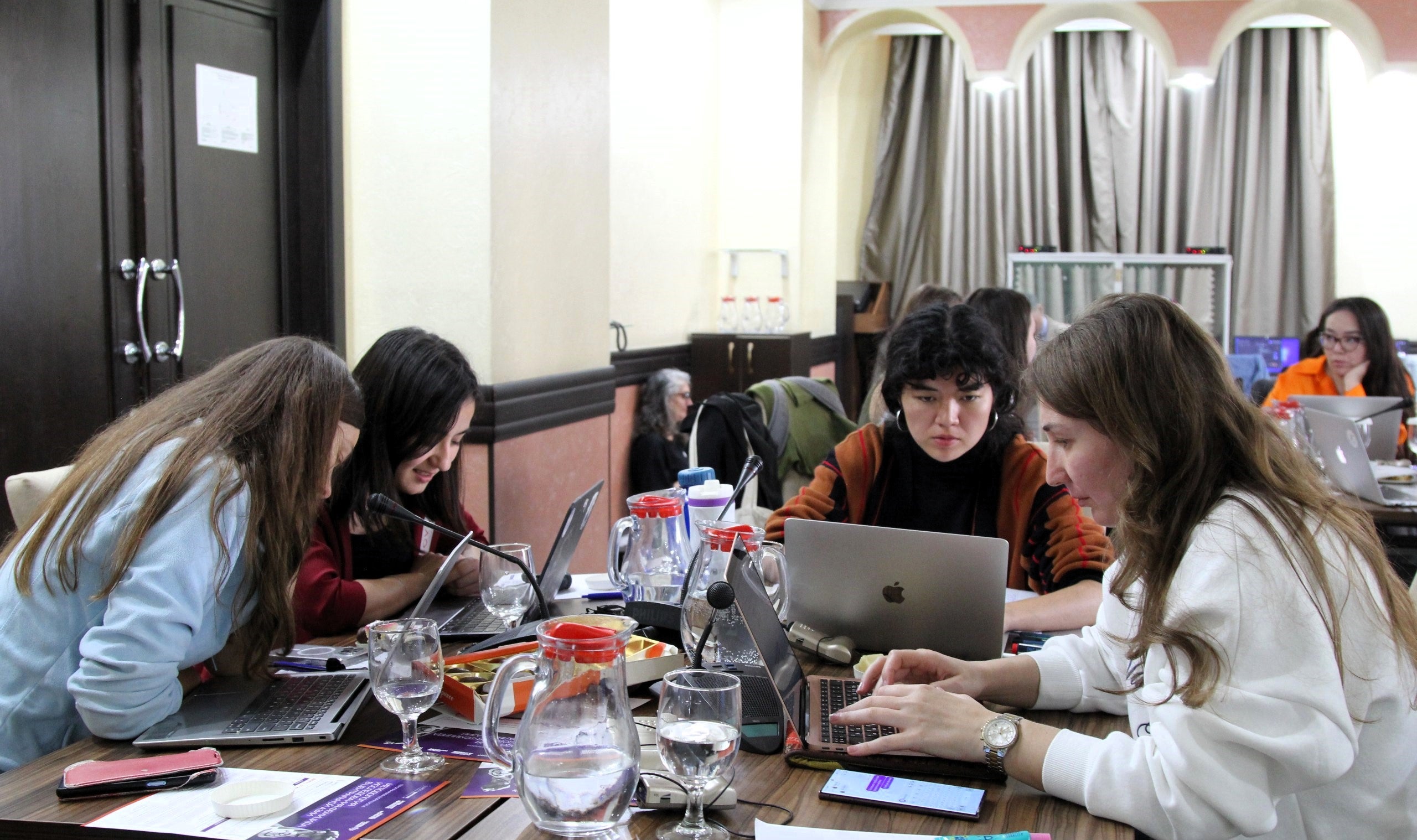Researchers, journalists and gender advocates unite to spearhead ground-breaking femicide research in Kazakhstan, Tajikistan and Uzbekistan
Date:

In a bold move to confront the systemic issue of femicide through the power of research and data, Central Asian researchers, journalists and gender advocates are embarking on the first-ever comprehensive femicide research in Kazakhstan, Tajikistan and Uzbekistan.
In 2022, the world witnessed a surge in the intentional killing of nearly 89,000 women and girls – an unprecedented annual figure in recent decades. More than 48,800 women were killed by their partners or family members, translating to over 133 women or girls being killed by a family member each day. Studying femicide is crucial for revealing structural violence and discrimination against women and for developing effective strategies and targeted interventions to prevent such crimes and ensure women’s safety.
“Gender-related killings of women and girls in Central Asia, also known as femicide, remain largely unexplored and in fact the real number of victims is unknown,” highlighted Ala Negruta, UN Women Regional Gender Statistics Specialist for Europe and Central Asia. “Without accurate data and reliable tools, it is challenging to understand the magnitude of the problem, its causes and consequences.”
To address this, on 26–28 May 2024, a pivotal workshop “Methodology for Researching Femicide in Central Asia” convened in Almaty, Kazakhstan, bringing together over 20 researchers, journalists and gender advocates from across Central Asia and beyond. Selected from a pool of 225 applications, the participants joined forces to conduct comprehensive femicide research in Kazakhstan, Tajikistan and Uzbekistan. The workshop provided a platform for participants to delve into the fundamental principles of data feminism and the causes of femicide in the context of Central Asian countries, and dive deep into the collection of femicide data using alternative data sources, including media sources.
Prior to the workshop, on 6 May 2024, participants also took part in an orientation webinar on measuring femicide and data feminist thinking and practice on data collection, processing and analysis.
The workshop featured a series of insightful presentations and sessions led by international experts in the field, each contributing to the participants’ knowledge and skills in researching femicide. Helena Suarez Val, a co-founder of Data against Feminicide and a research affiliate at the Data+Feminism Lab at the Massachusetts Institute of Technology, broadened participants’ knowledge about the fundamental principles of data feminism, worldwide research on feminicide and stages of a feminist data science project. Savia Hasanova, a data journalist from Kyrgyzstan, equipped participants with essential data analysis and web-scraping skills and shared various data sources and anti-femicide initiatives in former Commonwealth of Independent States (CIS) countries. Anna Kapushenko, editor-in-chief of Kloop media in Kyrgyzstan, guided participants on accurate reporting and responsible content creation on femicide.

Following the workshop, participants formed five teams and pitched to mentors their initial research proposals on femicide in Kazakhstan, Tajikistan and Uzbekistan.
In Kazakhstan, two research proposals aim to analyse media reports and integrate official data to study femicide before and after COVID-19 and advocate for femicide’s legal recognition.
“Currently, we only have article 99 on homicide, which does not differentiate based on gender or any other intersectional characteristics,” remarked Aigerim Kussainkyzy, a feminist activist and researcher from Kazakhstan. “With our research, we aim to provide recommendations to our law enforcement agencies and policymakers on how to incorporate and implement anti-femicide policies in Kazakhstan.”
Tajikistan’s researchers are aiming to craft the first-ever database of femicide cases by analysing media reports and primary data from law enforcement and official statistics, to influence policymaking with their findings.
“To grasp the extent of femicide and assert that these are not isolated incidents, we need data,” highlighted Gulnora Beknazarova, head of the NGO Zerkalo and a researcher from Tajikistan. “My colleagues and I aim to research and visually demonstrate that femicide exists and draw the attention of both the general public and State institutions to the problem of femicides in Tajikistan.”
In Uzbekistan, two teams propose to improve an existing database on femicide by analysing court cases, media portrayal of femicide cases before and after the implementation of the Domestic Violence Law in 2023, and by exploring intersectional dimensions by analysing incidents involving Uzbek migrant women abroad, in order to push for policy changes.
Svetlana Dzardanova, a Kyrgyzstani researcher studying femicide in Uzbekistan, underscored that femicide is a consequence of repeated violence and societal and governmental inaction: “It’s crucial to recognize that many cases of femicide could be prevented. It’s imperative to study femicide and raise public awareness, so that society acknowledges this issue not merely as a women’s problem but as a societal one. Only then will society strive to address it,” she said during the workshop.
Selected teams, upon receiving research grants in mid-June 2024, will embark on their research studies to be published and widely disseminated in November 2024 on UN Women and other media platforms.
The femicide research in Kazakhstan, Tajikistan and Uzbekistan is a joint initiative of UN Women, the School of Data and Data against Feminicide under the regional programme “Making Every Woman and Girl Count”, inspired by the experience of Kyrgyzstan and international best practice.